Last month’s Strategic and Economic Dialogue (S&ED) featured many thorny issues that have been plaguing U.S.-China relations for the past few months: North Korea, currency manipulation, Iran….and government procurement? Yes,  government procurement. Not what one would think of as a controversial topic worthy of a major dialogue between two of the world’s leading powers. So to help us understand the addition of government procurement to the S&ED agenda is Brett Gerson, an associate in the international trade and public procurement practices at Reed Smith and co-author of the recent article “Can China’s Government Procurement Market be Cracked?” in this month’s The China Business Review.
government procurement. Not what one would think of as a controversial topic worthy of a major dialogue between two of the world’s leading powers. So to help us understand the addition of government procurement to the S&ED agenda is Brett Gerson, an associate in the international trade and public procurement practices at Reed Smith and co-author of the recent article “Can China’s Government Procurement Market be Cracked?” in this month’s The China Business Review.
Click here to listen to the interview with Brett Gerson or read below for the entire transcript.
Length: 19 minutes (audio will open in another browser)
In the interview, Brett mentions three laws and regulations pertaining to government procurement in China. They can be found through these links:
***************************************************************************

Potentially a $90 billion Procurement Shopping Spree
EL: Just to begin, what exactly is meant by government procurement and how does this involve U.S.-China relations?
BG: Well, essentially government procurement is the process whereby governments or government ministries or agencies can purchase goods or services at a large-scale to provide for use in the carrying out of government processes. So for example, this could, as an example of goods, a government agency could purchase in bulk a large number of, let’s say, printers or staplers or another good. It could also be services. The government could enter into an agreement with an IT company to provide some type of computer services or internet maintenance or something like that.
It’s becoming a very big issue between the U.S. and China because like many other areas of China’s market, there is immense potential for companies – both Chinese and foreign – to get into China’s procurement market. Obviously the Chinese government is huge, they have a wide array of ministries and agencies both at a, sort of, federal level coming from Beijing, and at a provincial level.
EL: And how big is this market, this potential market, in U.S. dollars?
BG: It’s hard to say exactly. Most estimates hover around $90 billion which is really huge. But it is tough because it is hard to say exactly which entities are state-owned enterprises, so which are entirely private and which are sort of public in nature. But most estimates hover around $90 billion and I have seen a couple where in 2010 that’s expected to reach $100 billion.
EL: Currently, does China have any policy or laws in regards to government procurement of foreign companies’ goods or services?
BG: Yeah. In 2002, China promulgated the Government Procurement Law. It’s somewhat controversial in nature but it basically just states that Chinese government agencies and entities must purchase domestic goods, works or services except where those goods, works or services can’t be obtained within China under reasonable commercial terms. Those reasonable commercial terms are defined as 20 percent more than imports. Now, the problem with the Government Procurement Law is that it never defined what is “domestic.” So companies, particularly foreign companies, had a hard time cracking that market because it was so easy for the Chinese government and Chinese government agencies and entities to just simply purchase products – goods or services – from Chinese companies.
Since 2002, there has been a lot of international pressure on China to better define what is domestic. They finally did this in January 2010, just about six months ago, the Chinese government issued what’s called the Implementing Regulations. These aren’t exactly law, but they define how the Chinese government is suppose to carry out the Government Procurement Law. The Implementing Regulations set forth that….it better defined domestic. It says that essentially domestic manufacturing costs that exceed a certain threshold, those products will be defined as domestic. Now in the implementing regulations, they didn’t actually set the threshold. We were able to look at some other guidance that the Chinese government issued recently and we were able to guess that they probably meant 50 percent. Now, just a few weeks ago, right before the high-level meetings in China that you discussed, the Chinese government again issued another sort of policy guidance paper that did clarify that the threshold for a product to be considered domestic is 50 percent of domestic production costs.
EL: So if they have clarified this recently and this law has been in place since 2002, why is this now becoming such
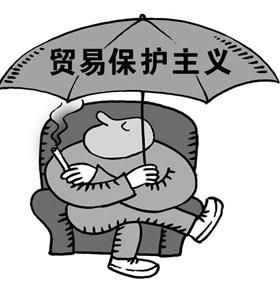
China's Government Procurement Laws - Trade Protectionism?
an issue? What has caused government procurement to become almost the centerpiece of the Strategic and Economic Dialogue last month?
BG: There’s two main reasons and they sort of come together. The first is that in the World Trade Organization, there is an agreement called the Government Procurement Agreement [GPA]. It’s a plurilateral agreement meaning that some but not all of the World Trade Organization members are a part of this agreement. It basically just states that if you’re a party to this agreement, you cannot favor products or services from your country against those from a foreign country. China, when they first came on to the World Trade Organization in 2001, they promised that they would join the Government Procurement Agreement as soon as possible. Now, they have submitted a proposal before, back in 2007, but it didn’t quite come to the level of international best practices. The member countries essentially rejected it. Since that point, the United States as well as major European countries and other members to the GPA, have pressured China to resubmit a proposal that do come up to the standard that the member countries expect. Finally, China agreed just recently at the high-level discussions in China that they were going to submit a new proposal in July of this year. Right before the time the World Trade Organization Government Procurement Committee meets. So I think that is one of the issues that is really bringing it to the forefront, is that there is a lot of pressure on China to join the GPA agreement.
The other issue, and this was also discussed and mentioned by Hillary Clinton and Timothy Geithner, is China has set forth a very controversial policy called indigenous innovation policies. And basically these are policies that direct provincial governments and agencies and ministries to buy only from certain product catalogs. These catalogs are primarily made up of high-tech and IT goods and traditionally it’s been extremely hard for foreign companies to get their products onto these catalogs. For example, and I mention this in the article, out of the Shanghai-based catalog, there are over 500 products that are listed on this catalog, and foreign products make up only two of these products. Of those two, they are not entirely foreign entities, they’re joint ventures between a foreign company and a local Chinese company.
So I think those two issues, one that China has been slow to join the World Trade Organization Government Procurement Agreement and two, these indigenous innovation polices that make it very difficult for foreign companies to get their high-tech products listed on these procurement catalogs.
EL: But in terms of China favoring its domestic products over foreign products, is China really acting any differently than from any other countries in terms of government procurement? Doesn’t in the U.S., isn’t the U.S. government required to purchase U.S. products? How is China any different from that?
 BG: Well there’s a couple of differences. The U.S. and other countries that are members of the GPA do have policies that direct or allow their own domestic government entities to purchase only domestic products.
BG: Well there’s a couple of differences. The U.S. and other countries that are members of the GPA do have policies that direct or allow their own domestic government entities to purchase only domestic products.
There’s a couple of differences. One, here in the U.S. we have what is called the Buy American Act. The Buy American Act essentially says that federal agencies can only procure unmanufactured articles that have been mined or produced in the U.S. or manufactured articles that were made substantially of articles or materials mined or produced in the U.S. But there are several exceptions. One is you can waive that if it would be consistent with public interest or if observing that preference would be inconsistent with the public interest. Second, where the cost of buying the U.S. good is, sort of, unreasonably higher than would you purchase them from a foreign entity. The third exception is where the products in question are in too short of a supply in the U.S. to make that purchase feasible.
In addition to that, government agencies may purchase foreign-made information technology equipment. So that’s sort of a big issue and that sort of touches upon the China indigenous innovation policies – there is sort of a cut-out for U.S. government agencies to waive the Buy American requirements for sort of high-tech, IT goods.
Also, the Buy American Act doesn’t include services which the Chinese government procurement policies will. As you know, services is a huge sector for foreign companies in China: legal services, accounting services, IT services, things of this nature.
In addition to the Buy American Act, we also have the Trade Agreements Act and this is a pretty big issue because the Buy American Act will be waived where we have a trade agreement act, an agreement with another country. These include all the countries that are signatories of the WTO Government Procurement Agreement that we mentioned before that China is not a signatory to; these also include all countries that we have free trade agreements with ; all these developed countries and also the Caribbean basin countries.
You are right in that the U.S. does have certain policies like the Buy American Act that on their face appear somewhat discriminatory. But I think that the differences between China’s policies and the U.S. policies is that we have so many carve-outs for our Buy American Act: exceptions and instances where the Buy American Act requirements will be waived where we have agreements in place with other countries. China is not one of them.
EL: Just to go back to the indigenous innovation policy of China, because that was something that Secretary of State Clinton did mention specifically as a problem. I guess just examining the equities of it. Given that the U.S. and other countries were largely able to develop their technology sector before our current global trade system, and before there was competition from other countries, shouldn’t China also be permitted this luxury? Don’t they have an opportunity to catch up? Isn’t China’s indigenous innovation policy just a way to allow its small but growing technology sector to really flourish?
BG: There is no question that China should be allowed to sort of foster the growth of their high-tech services but I
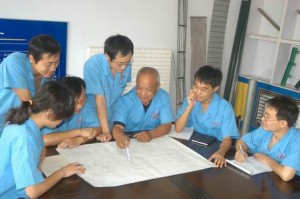
Investing in R&D in China might bring more benefit than an indigenous innovation policy
think, and Secretary Clinton and Secretary Geithner both mentioned this, that there’s ways to do this that are less discriminatory for foreign firms. Rather than link the indigenous innovation policies to government procurement – which they are trying to do – we think that there are other ways such as using tax incentives or research and development support programs that can sort of achieve the same goals without the discriminatory effect. We think that generally China grow this area by including foreign firms rather than excluding them. Like I said, there are certainly sort of high-tech tax status programs that they can enter into and R&D programs.
One of the big ways that their policies discriminate against foreign firms is, initially when they released the indigenous innovation policies, they required that to get on these catalogues that I mentioned before, the company has to…the trademark of the product has to be owned by a Chinese company and they also had to have full ownership of the products IP [intellectual property] in China. This was really stringent, this was tough. Thankfully, just a couple of months ago in April actually, the Chinese government again released sort of guiding, implementing regulations memo. Now, this doesn’t have the force of law but they’re proposing to relax these requirements by saying that instead of having full ownership of the trademark in China, the company need only have exclusive rights to the product’s trademark in China. Instead of having complete ownership of the intellectual property in China, you only have to have a license to use the intellectual property in China.
So this is definitely a step in the right direction. But ultimately, I think ideally foreign companies, U.S. companies, would want to de-link the indigenous innovation policies from government procurement.
EL: Just getting back to the Strategic and Economic Dialogue, do you know what it was that the U.S. side was seeking to achieve in terms of government procurement and indigenous innovation policy. I know that you had mentioned a little bit before but can you just summarize that the U.S. wanted out of it?
BG: Sure. I think the first thing they wanted is to urge China to submit an additional proposal, a new proposal, to the World Trade Organization Government Procurement Agreement, which they have agreed to do by mid-July so that’s definitely is a step in the right direction. We don’t know exactly what that is going to say but we are think that it is going to be a step closer to international best practices and the other proposals that the member countries have agreed to.
Second, I think that, the U.S. delegates really wanted the Chinese government to relax the indigenous innovation policies and de-link them from the government procurement policies. As it stands right now in the Implementing Regulations, Article 9 says that Chinese government entities and agencies should favor indigenous innovation products which are only listed on these catalogues like I mentioned. So I think what the U.S. government would like to see is getting rid of the indigenous innovation article from the Government Procurement Law. It is unclear that the Chinese government is going to do that.
EL: Even though it seems like there was some progress at the Strategic and Economic Dialogue and that China has agreed to submit a new proposal, do you really see though China, I guess, even if it submits a new proposal, do you see that proposal to the WTO to join the Government Procurement portion of the WTO, do you see that as actually being something that other member countries would agree to? Do you see China acquiescing to a lot of the foreign pressure and is it really in China’s self-interest to do that at this stage in its development?
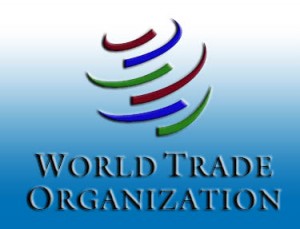 BG: It’s hard to say at this point. I think we’ve seen that, in other areas, in strategic and economic areas, China has certainly refused to acquiesce to international pressure to do certain things or not to do certain things. So it is hard to say without seeing their proposal. I think that the GPA member countries would reject a proposal that is not up to standard. They’ve done it before and I think they might do it again. And I’m not sure that would be in China’s interest. I think China at this point would have to understand what the member countries expect, what the parameters would be. And it’s unclear to me that they would submit something that would be any less than that. So it’s hard to say. I don’t know.
BG: It’s hard to say at this point. I think we’ve seen that, in other areas, in strategic and economic areas, China has certainly refused to acquiesce to international pressure to do certain things or not to do certain things. So it is hard to say without seeing their proposal. I think that the GPA member countries would reject a proposal that is not up to standard. They’ve done it before and I think they might do it again. And I’m not sure that would be in China’s interest. I think China at this point would have to understand what the member countries expect, what the parameters would be. And it’s unclear to me that they would submit something that would be any less than that. So it’s hard to say. I don’t know.
Generally it seems that China doesn’t acquiesce. However if the international community is successful in persuading them that it is in their best interest, to relax their indigenous innovation policies and to de-link them from government procurement, then I think they will go ahead and submit a proposal that’s up to par, that’s in line with international best practices.
Over the last several months, in January, since they issued their Implementing Regulations, there has been significant international backlash and they have sort of watered down some of the more strict discriminatory provisions in the Implementing Regulations. So there’s been progress. I suppose they only have another six, seven weeks before they’re going to submit their proposal to the Government Procurement Committee so it is unclear how much further they are going to go in watering those items down.
EL: Well I guess only time will tell what happens in July. Thank you.
BG: It will be interesting; hopefully we can follow up and discuss what happened.
EL: That would be great. Thank you so much for your time.
BG: Thank you.
/https://www.thestar.com/content/dam/thestar/business/2019/01/03/china-says-no-doubt-two-detained-canadians-broke-law/untitled_design_3_.jpg)

 On Facebook
On Facebook By Email
By Email 


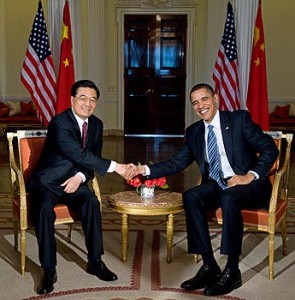













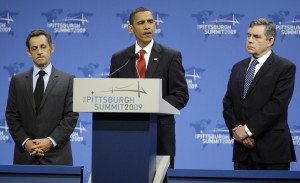
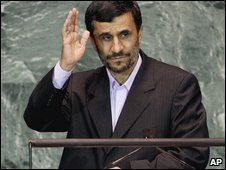
 And while political pundits, the media and elected officials in the West are currently criticizing China for not throwing its weight behind sanctions, it is China’s current silence on the issue that gives the October 1 talks the best chance of success. Without China’s commitment for or against sanctions, Iran is left guessing what its trading partner will do, and could acquiesce to U.S. demands to show blueprints of the new nuclear site and open its country to inspectors.
And while political pundits, the media and elected officials in the West are currently criticizing China for not throwing its weight behind sanctions, it is China’s current silence on the issue that gives the October 1 talks the best chance of success. Without China’s commitment for or against sanctions, Iran is left guessing what its trading partner will do, and could acquiesce to U.S. demands to show blueprints of the new nuclear site and open its country to inspectors.